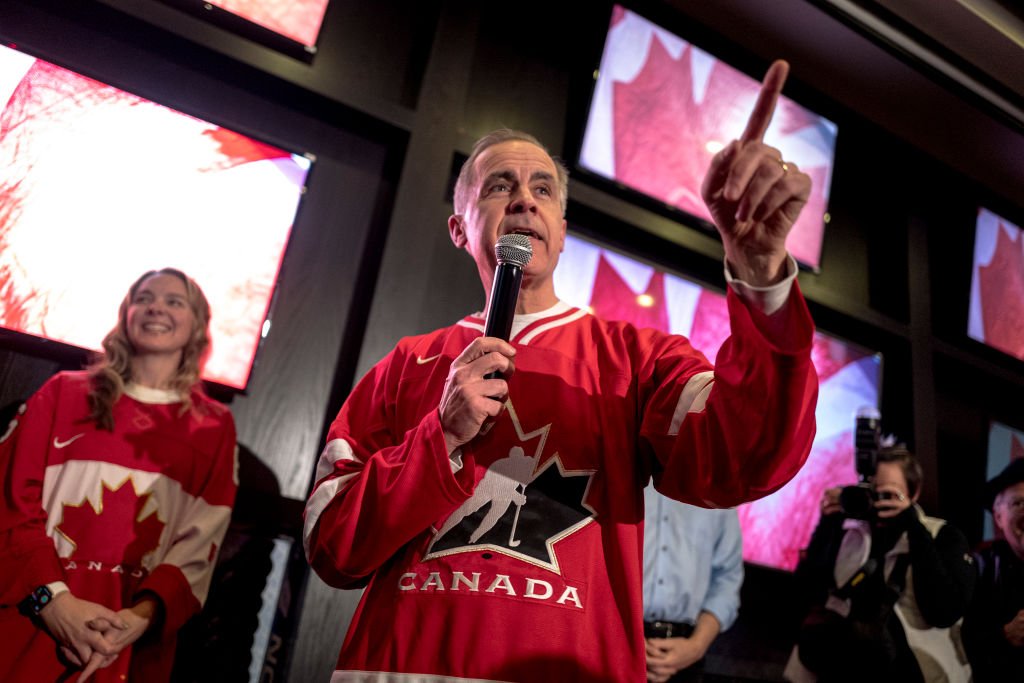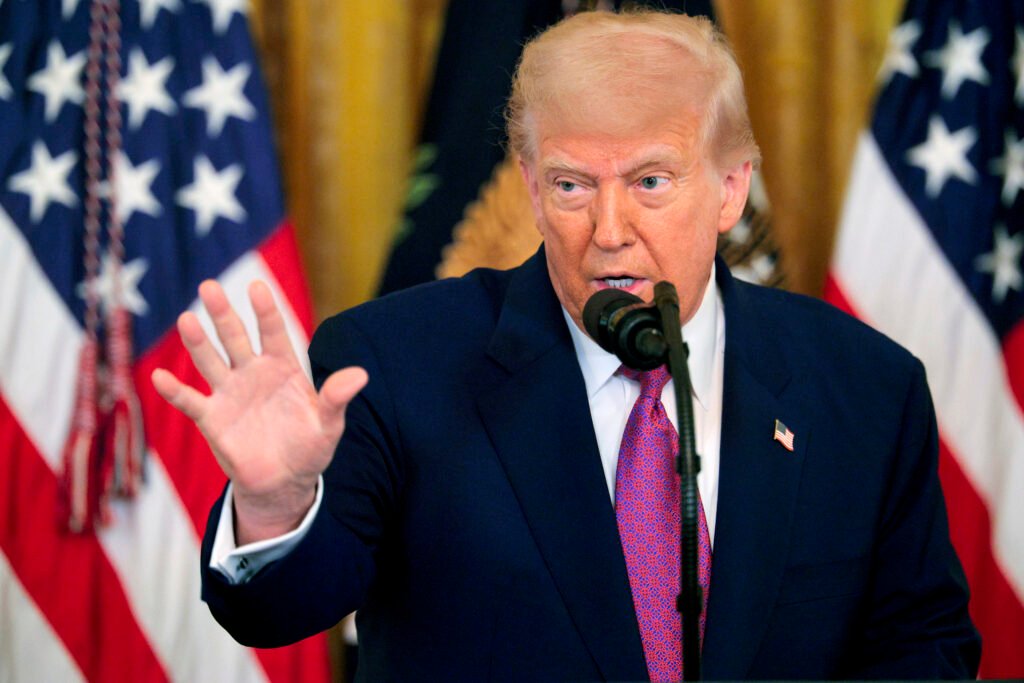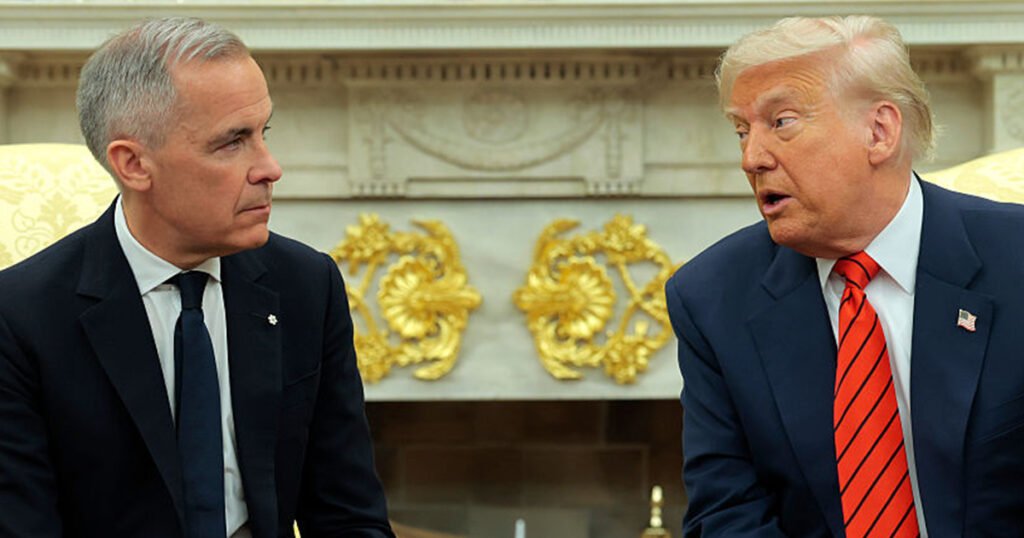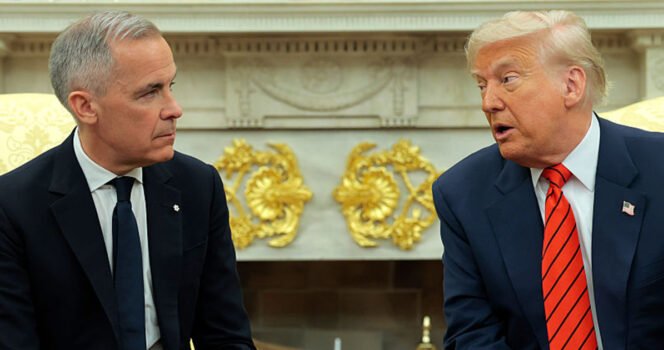Tensions are boiling over again as President Donald Trump lashes out, accusing Canada of a “blatant attack.”
Didn’t Take It Lightly
Known for their direct, tough-talking approaches, Canadian Prime Minister Mark Carney, 60, and U.S. President Donald Trump, 79, had appeared to maintain mutual respect until now.
Trump had reportedly admired Carney’s background as a leading figure in global finance. But that diplomatic balance is quickly breaking down.
The spark? A highly controversial new tax from Canada that’s straining U.S.-Canada ties. Ottawa has introduced a 3% digital services tax targeting major tech companies like Amazon, Meta, Google, Uber, and Airbnb and it’s retroactive to 2022.
According to NBC News, this could leave American tech giants with a massive $2 billion tax bill, all due by the end of the month. The tax kicks in for companies making over $14.6 million annually from Canadian users.

Unsurprisingly, Trump didn’t hold back.
In a fiery Truth Social post on June 27, he lashed out:
“We’ve just learned that Canada always a tough trading partner, especially with their outrageous tariffs of up to 400% on our dairy products is now slapping a Digital Services Tax on American tech companies. This is a direct and blatant attack on our country.
They’re clearly copying the European Union, which is doing something similar and currently in talks with us. Because of this outrageous tax, we are immediately ending all trade discussions with Canada.
Within the next seven days, we will inform Canada of the new tariffs they’ll face to do business with the United States. Thank you for your attention to this matter!”
A Major Turning Point
Trump’s remarks signaled a dramatic escalation, potentially freezing trade ties with one of America’s top economic allies. In 2024 alone, trade between the U.S. and Canada surpassed $762 billion, according to the U.S. Trade Representative.
Asked about Trump’s aggressive stance, Carney remained composed, stating:
“We’ll continue to handle these complex negotiations in the best interests of Canadians.”
Later, Trump doubled down during a press briefing at the White House, warning:
“Economically, we have tremendous leverage over Canada. We’d prefer not to use it but if we have to, it won’t end well for them. This move was a big mistake on their part.”

No Interest in Restarting Talks
When asked whether negotiations could be revived, Trump was blunt:
“It doesn’t matter to me,” he said, suggesting Canada could simply “remove the tax,” and confidently predicting it eventually would.
This escalation follows growing pressure from U.S. lawmakers, who urged Trump to respond forcefully to what they called an “unprecedented, retroactive tax.”
“Letting Canada move forward with this tax sends a dangerous message that countries can get away with targeting American companies, workers, and our tax base,” lawmakers warned.
Turning on Europe Too
Trump also took aim at European nations implementing similar digital taxes.
“They’ve treated us terribly especially past presidents,” he said. “They’re only being nice to me now because they know I understand the system. We hold the real leverage, not them.”
He didn’t hold back, adding:
“They’re nasty people, and I don’t want them interfering with U.S. companies. If anyone’s going to penalize our companies, it should be us not some foreign government.”

Trump Scores a Win in U.S.-Canada Tax Dispute
In the escalating battle over Canada’s digital services tax, it appears Trump may have come out on top at least for now.
Following his fiery Friday post, events moved swiftly, culminating in a high-stakes phone call between Trump and Canadian Prime Minister Mark Carney on Sunday night.
Just hours later, Ottawa announced it was backing off the controversial tax “in anticipation” of reaching a mutually beneficial trade deal with the U.S. notably, just one day before the first payments were set to take effect.
“This decision will help restart negotiations aiming to meet the July 21, 2025, deadline established during this month’s G7 Leaders’ Summit in Kananaskis,” Carney said in a statement.







